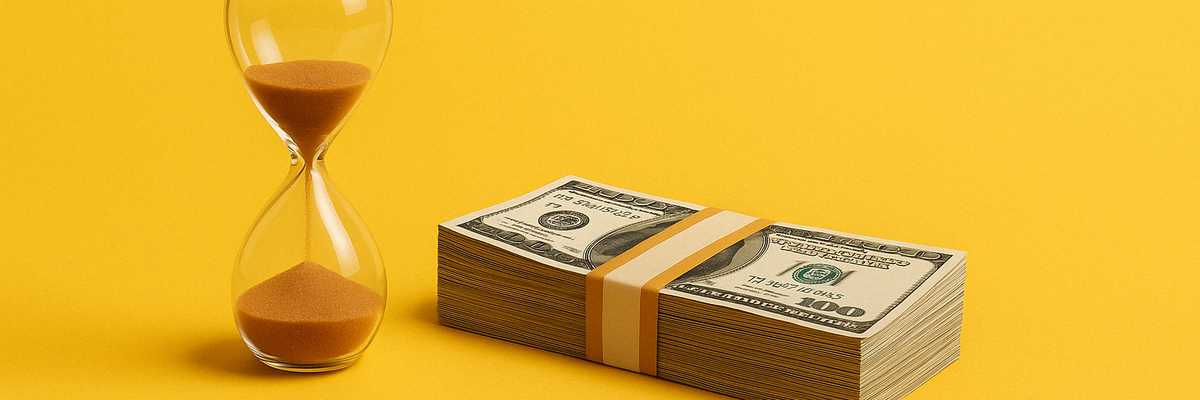It Pays to Cash Out a CD Early in These 3 Scenarios

KEY POINTS
- Cashing out a CD early will cost you a penalty, anywhere from three to 12 months of interest.
- But sometimes it makes sense to pay the fee vs. waiting it out.
- No-penalty CDs and high-yield savings accounts are also great options if you need cash flexibility.
CDs are great for safe, steady returns. Some are paying annual percentage yields (APYs) over 4.00% right now.
But what if life changes mid-term and you need the money back? Or rates jump higher after you lock in?
When it makes sense to cash out early
Cashing out a CD early usually comes with a penalty. But in some cases it makes sense to pay the fee, because the reason for cashing out trumps the cost. The following three scenarios fit the bill.
1. A better interest rate becomes available
If rates have gone up since you locked in your CD, you may be missing out on better returns.
For example, let's say you opened a 12-month CD last year at 2.50% APY, and it automatically renewed at the same rate. But this week you just learned that current CD rates offered by online banks are around 4.00%. Even if you lose a few months of interest as a penalty, your money could earn more by switching. You'll just need to do the math to make sure you'll come out ahead after your penalty has been factored in.
2. You need emergency cash -- and don't want to rack up debt
Emergencies never happen when it's convenient. So if you find yourself strapped for cash and have exhausted your emergency funds, tapping a CD early beats taking on debt.
The key is comparing the early withdrawal fee with the cost of borrowing. For example, if your CD penalty is $75, and a credit card balance would cost you $300 in interest, the choice is pretty clear.
3. You've got a better plan for that money
Sometimes, the opportunity cost of keeping your cash locked away outweighs the steady (but modest) CD return. Honestly, if the stock market continues to tank this year, it presents a tremendous buying opportunity for long-term investors.
A small penalty could be worth it if your new plan puts your money to better use.
Alternatives to cashing out CDs early
If you're hesitant to withdraw your deposit early, here are a few other options to consider:
1. Partial withdrawals
Some banks allow partial CD cash-outs, especially for emergency situations. You'll typically only pay a penalty on the amount you withdraw -- not the whole balance.
2. CD laddering
A CD ladder spreads your money across multiple CDs with staggered maturity dates. That way, you always have one coming due soon -- like a constant stream of cash flow. In this scenario, you might never need to cash out a CD early.
3. No-penalty CDs
These special CDs let you withdraw your money early without fees. The trade-off is usually a slightly lower rate, but it's a great fit if you want both high APY and flexibility.
Short-term CD rates are still strong -- see which banks are paying the most on your savings.
For ultimate flexibility, try a high-yield savings account
If you're not 100% comfortable in locking money up in a CD, a perfect solution right now is a high-yield savings account (HYSA).
Many top online banks are offering 4.00% APY or more right now -- which is just a hair shorter than what CDs are offering.
And the best part? You get full liquidity. No penalties. No waiting.
My favorite HYSA right now? The CIT Platinum Savings account earns 4.00% APY for balances of $5,000 or more. Open a CIT Platinum Savings account today.
The bottom line
Cashing out a CD early isn't always a financial misstep. If it means earning more, avoiding debt, or gaining flexibility, it could be the smart play.
Just run the numbers first. And if you're not sure about locking in again, a high-yield savings account might be the better bet.
Our Research Expert


